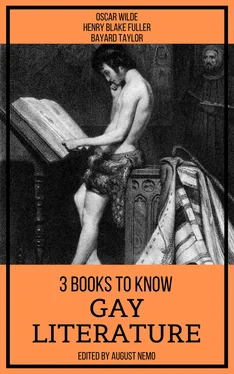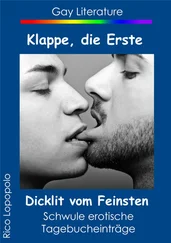1 ...6 7 8 10 11 12 ...43 “And you know you have been a little silly, Mr. Gray, and that you don’t really object to being reminded that you are extremely young.”
“I should have objected very strongly this morning, Lord Henry.”
“Ah! this morning! You have lived since then.”
There came a knock at the door, and the butler entered with a laden tea-tray and set it down upon a small Japanese table. There was a rattle of cups and saucers and the hissing of a fluted Georgian urn. Two globe-shaped china dishes were brought in by a page. Dorian Gray went over and poured out the tea. The two men sauntered languidly to the table, and examined what was under the covers.
“Let us go to the theatre to-night,” said Lord Henry. “There is sure to be something on, somewhere. I have promised to dine at White’s, but it is only with an old friend, so I can send him a wire to say that I am ill, or that I am prevented from coming in consequence of a subsequent engagement. I think that would be a rather nice excuse: it would have all the surprise of candour.”
“It is such a bore putting on one’s dress-clothes,” muttered Hallward. “And, when one has them on, they are so horrid.”
“Yes,” answered Lord Henry, dreamily, “the costume of the nineteenth century is detestable. It is so sombre, so depressing. Sin is the only real colour-element left in modern life.”
“You really must not say things like that before Dorian, Harry.”
“Before which Dorian? The one who is pouring out tea for us, or the one in the picture?”
“Before either.”
“I should like to come to the theatre with you, Lord Henry,” said the lad.
“Then you shall come; and you will come too, Basil, won’t you?”
“I can’t really. I would sooner not. I have a lot of work to do.”
“Well, then, you and I will go alone, Mr. Gray.”
“I should like that awfully.”
The painter bit his lip and walked over, cup in hand, to the picture. “I shall stay with the real Dorian,” he said, sadly.
“Is it the real Dorian?” cried the original of the portrait, strolling across to him. “Am I really like that?”
“Yes; you are just like that.”
“How wonderful, Basil!”
“At least you are like it in appearance. But it will never alter,” sighed Hallward. “That is something.”
“What a fuss people make about fidelity!” exclaimed Lord Henry. “Why, even in love it is purely a question for physiology. It has nothing to do with our own will. Young men want to be faithful, and are not; old men want to be faithless, and cannot: that is all one can say.”
“Don’t go to the theatre to-night, Dorian,” said Hallward. “Stop and dine with me.”
“I can’t, Basil.”
“Why?”
“Because I have promised Lord Henry Wotton to go with him.”
“He won’t like you the better for keeping your promises. He always breaks his own. I beg you not to go.”
Dorian Gray laughed and shook his head.
“I entreat you.”
The lad hesitated, and looked over at Lord Henry, who was watching them from the tea-table with an amused smile.
“I must go, Basil,” he answered.
“Very well,” said Hallward; and he went over and laid down his cup on the tray. “It is rather late, and, as you have to dress, you had better lose no time. Good-bye, Harry. Good-bye, Dorian. Come and see me soon. Come to-morrow.”
“Certainly.”
“You won’t forget?”
“No, of course not,” cried Dorian.
“And . . . Harry!”
“Yes, Basil?”
“Remember what I asked you, when we were in the garden this morning.”
“I have forgotten it.”
“I trust you.”
“I wish I could trust myself,” said Lord Henry, laughing. “Come, Mr. Gray, my hansom is outside, and I can drop you at your own place. Good-bye, Basil. It has been a most interesting afternoon.”
As the door closed behind them, the painter flung himself down on a sofa, and a look of pain came into his face.
––––––––

At half-past twelve next day Lord Henry Wotton strolled from Curzon Street over to the Albany to call on his uncle, Lord Fermor, a genial if somewhat rough-mannered old bachelor, whom the outside world called selfish because it derived no particular benefit from him, but who was considered generous by Society as he fed the people who amused him. His father had been our ambassador at Madrid when Isabella was young, and Prim unthought of, but had retired from the Diplomatic Service in a capricious moment of annoyance at not being offered the Embassy at Paris, a post to which he considered that he was fully entitled by reason of his birth, his indolence, the good English of his despatches, and his inordinate passion for pleasure. The son, who had been his father’s secretary, had resigned along with his chief, somewhat foolishly as was thought at the time, and on succeeding some months later to the title, had set himself to the serious study of the great aristocratic art of doing absolutely nothing. He had two large town houses, but preferred to live in chambers, as it was less trouble, and took most of his meals at his club. He paid some attention to the management of his collieries in the Midland counties, excusing himself for this taint of industry on the ground that the one advantage of having coal was that it enabled a gentleman to afford the decency of burning wood on his own hearth. In politics he was a Tory, except when the Tories were in office, during which period he roundly abused them for being a pack of Radicals. He was a hero to his valet, who bullied him, and a terror to most of his relations, whom he bullied in turn. Only England could have produced him, and he always said that the country was going to the dogs. His principles were out of date, but there was a good deal to be said for his prejudices.
When Lord Henry entered the room, he found his uncle sitting in a rough shooting coat, smoking a cheroot, and grumbling over The Times. “Well, Harry,” said the old gentleman, “what brings you out so early? I thought you dandies never got up till two, and were not visible till five.”
“Pure family affection, I assure you, Uncle George. I want to get something out of you.”
“Money, I suppose,” said Lord Fermor, making a wry face. “Well, sit down and tell me all about it. Young people, nowadays, imagine that money is everything.”
“Yes,” murmured Lord Henry, settling his buttonhole in his coat; “and when they grow older they know it. But I don’t want money. It is only people who pay their bills who want that, Uncle George, and I never pay mine. Credit is the capital of a younger son, and one lives charmingly upon it. Besides, I always deal with Dartmoor’s tradesmen, and consequently they never bother me. What I want is information; not useful information, of course; useless information.”
“Well, I can tell you anything that is in an English Blue-book, Harry, although those fellows nowadays write a lot of nonsense. When I was in the Diplomatic, things were much better. But I hear they let them in now by examination. What can you expect? Examinations, sir, are pure humbug from beginning to end. If a man is a gentleman, he knows quite enough, and if he is not a gentleman, whatever he knows is bad for him.”
“Mr. Dorian Gray does not belong to Blue-books, Uncle George,” said Lord Henry, languidly.
“Mr. Dorian Gray? Who is he?” asked Lord Fermor, knitting his bushy white eyebrows.
“That is what I have come to learn, Uncle George. Or rather, I know who he is. He is the last Lord Kelso’s grandson. His mother was a Devereux; Lady Margaret Devereux. I want you to tell me about his mother. What was she like? Whom did she marry? You have known nearly everybody in your time, so you might have known her. I am very much interested in Mr. Gray at present. I have only just met him.”
Читать дальше













